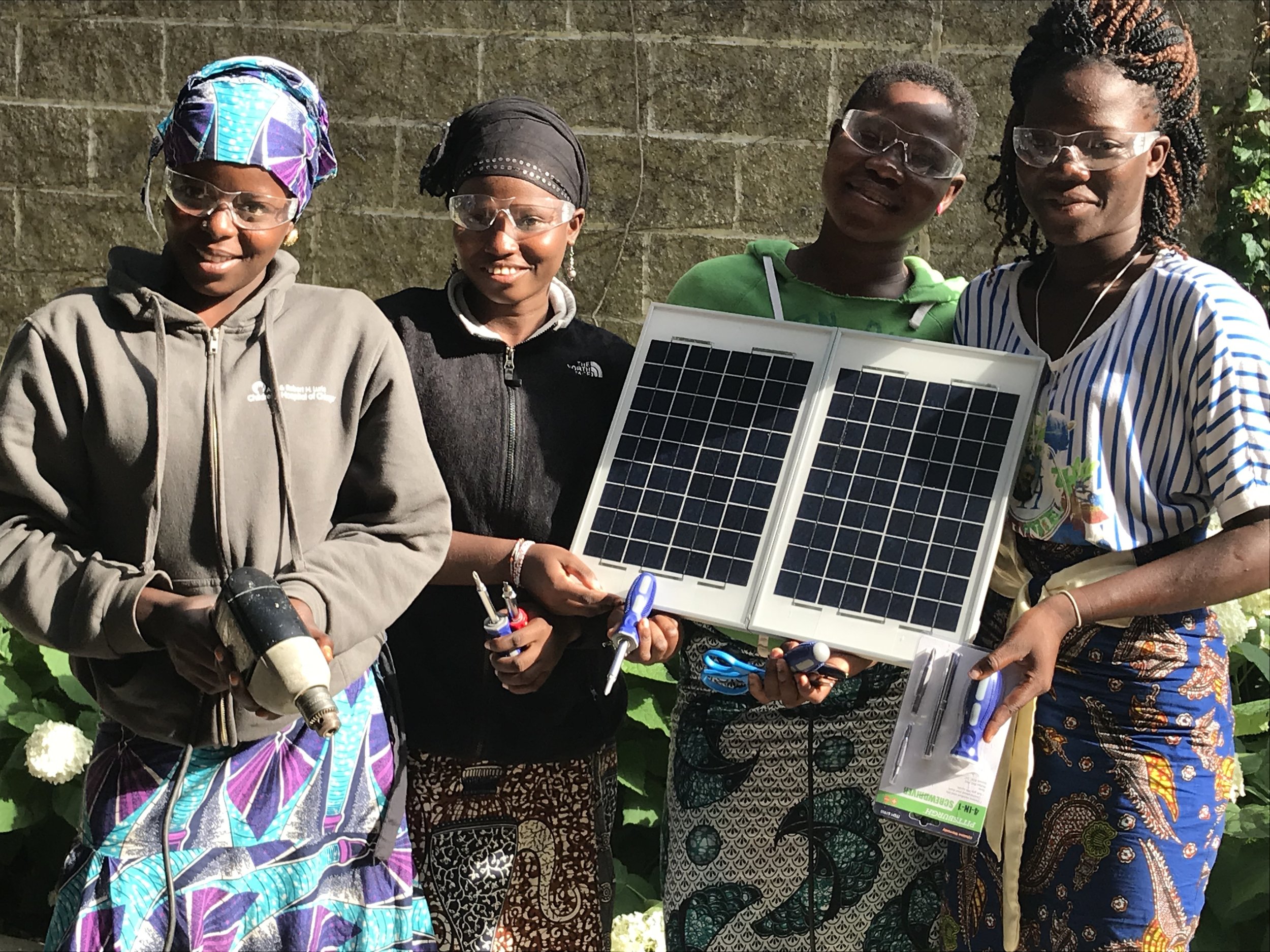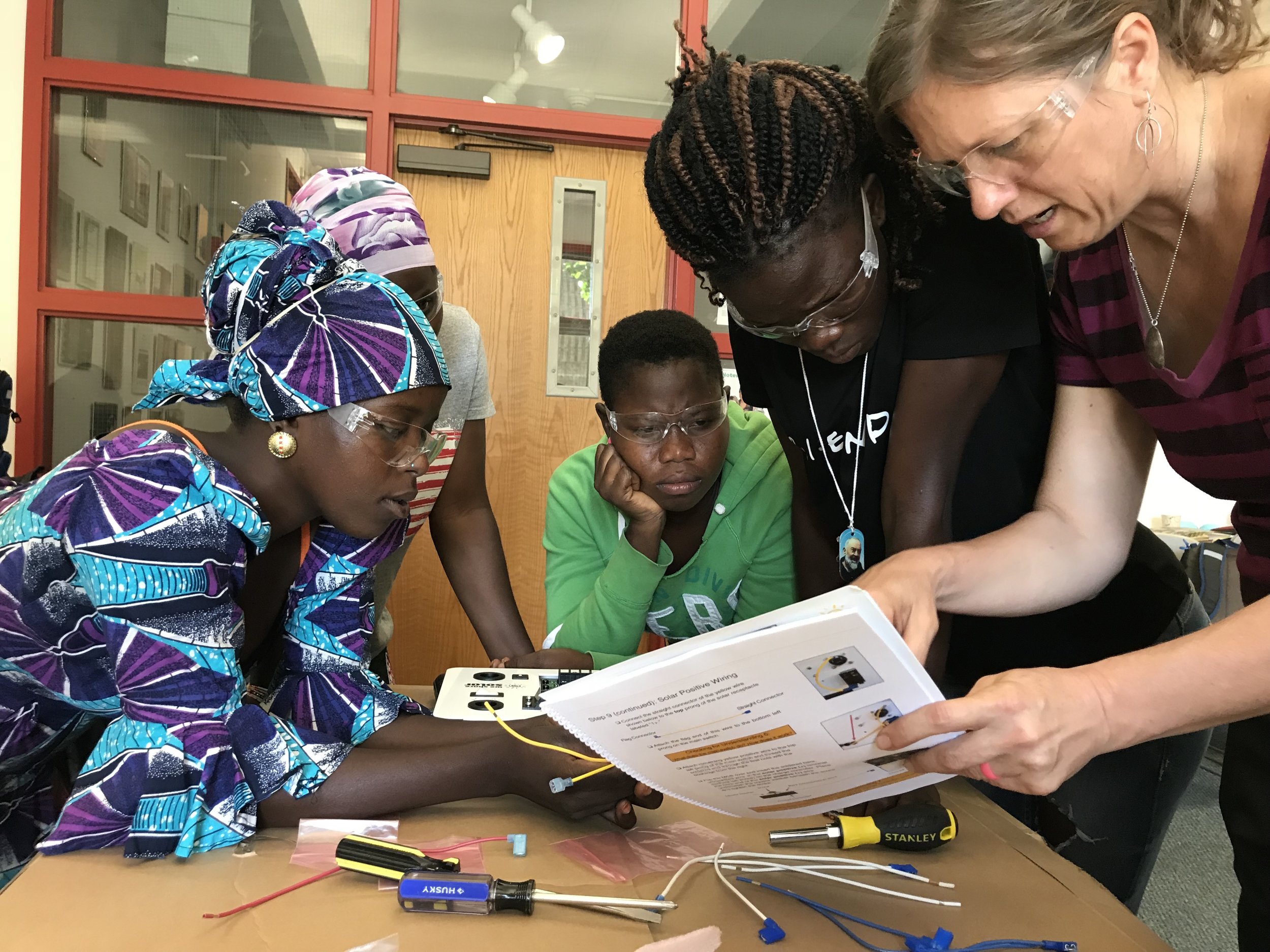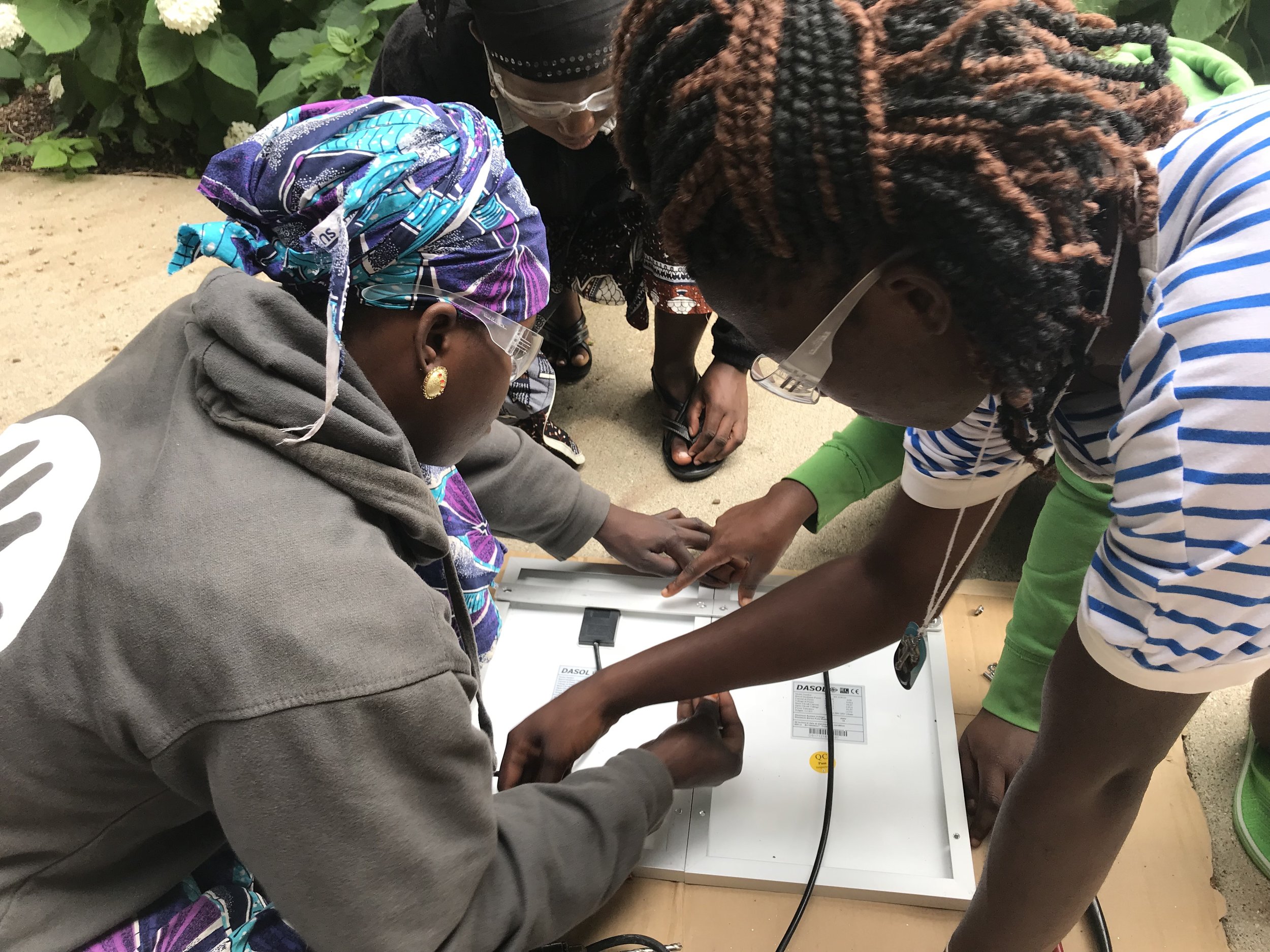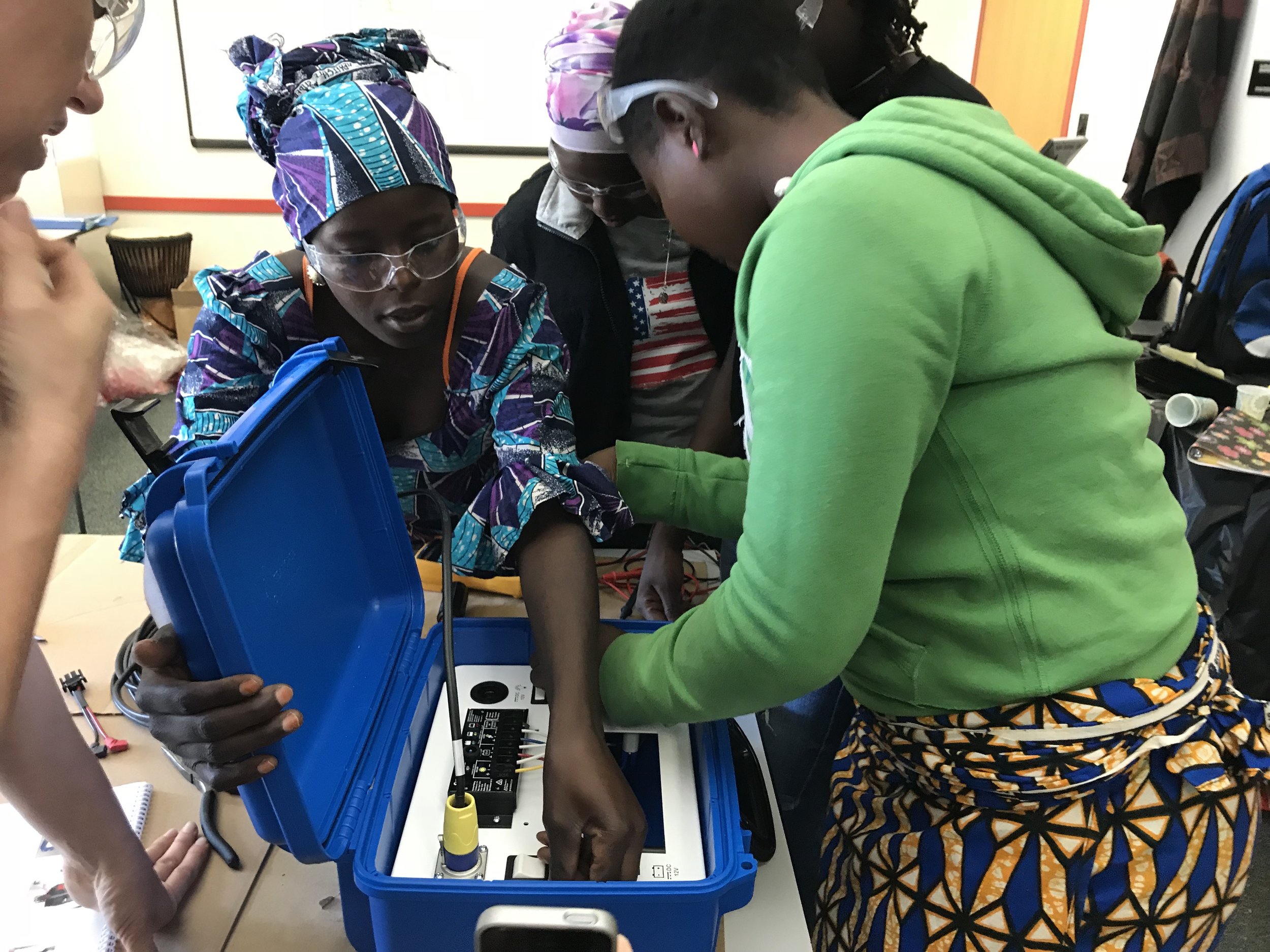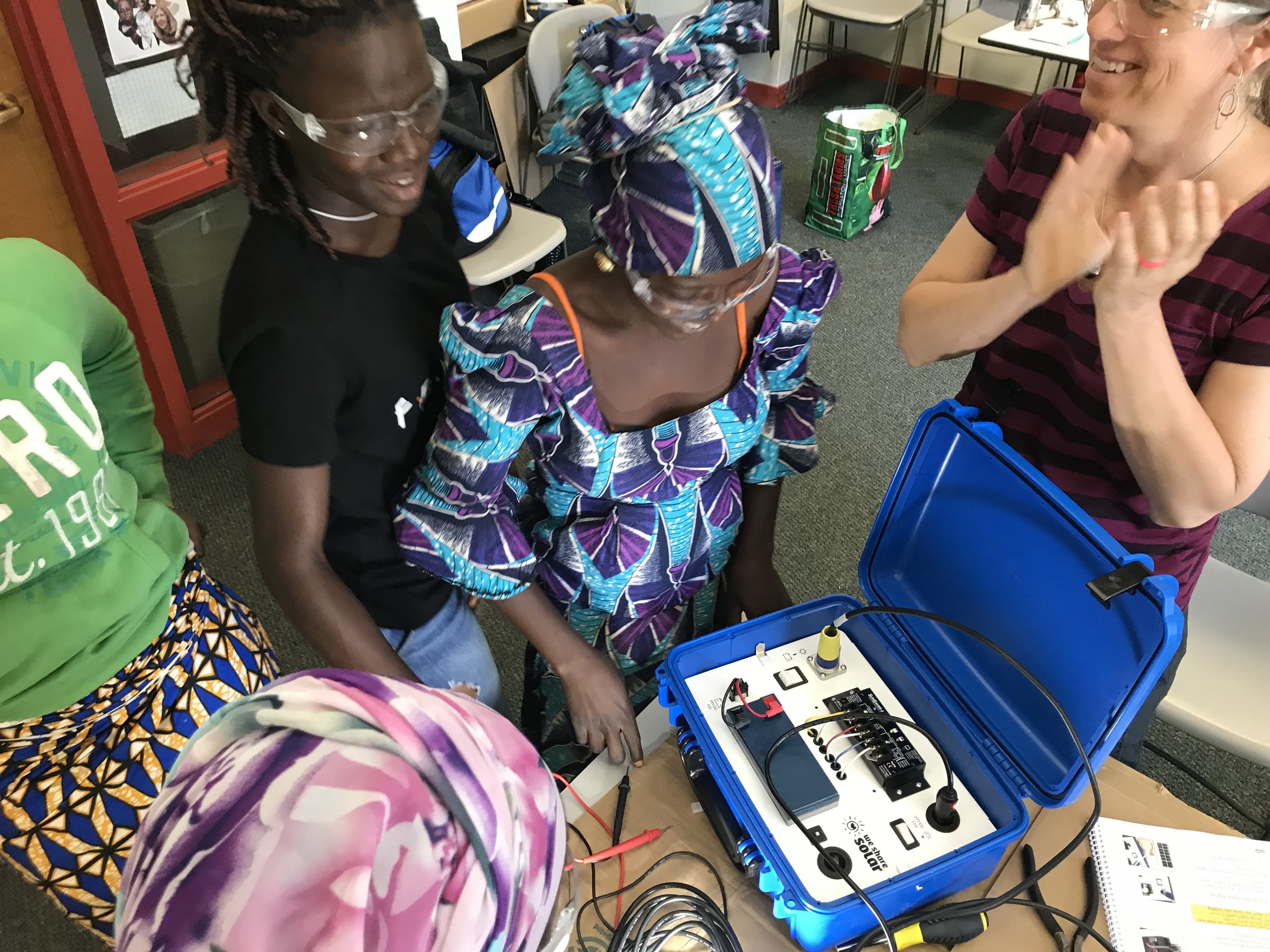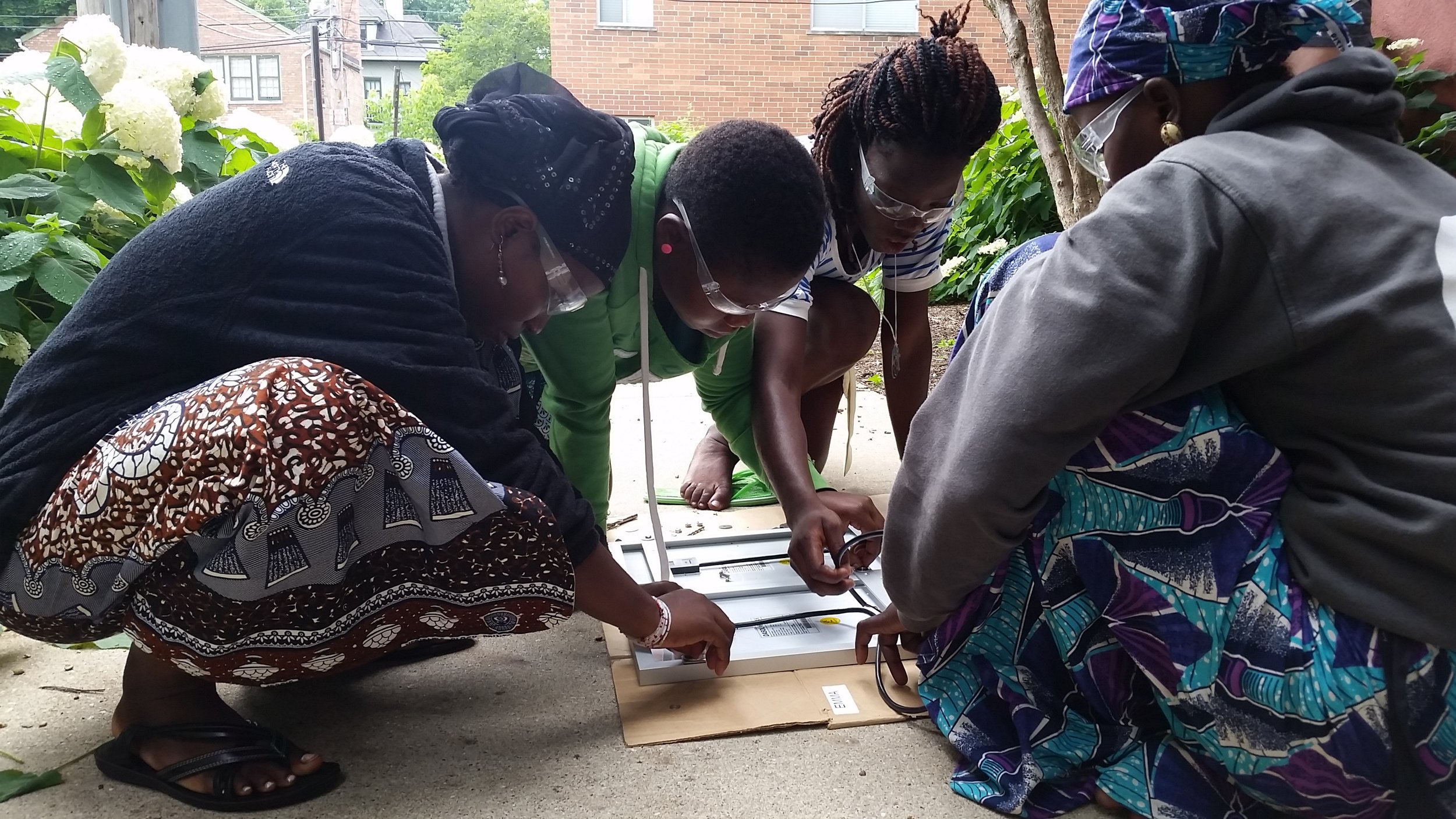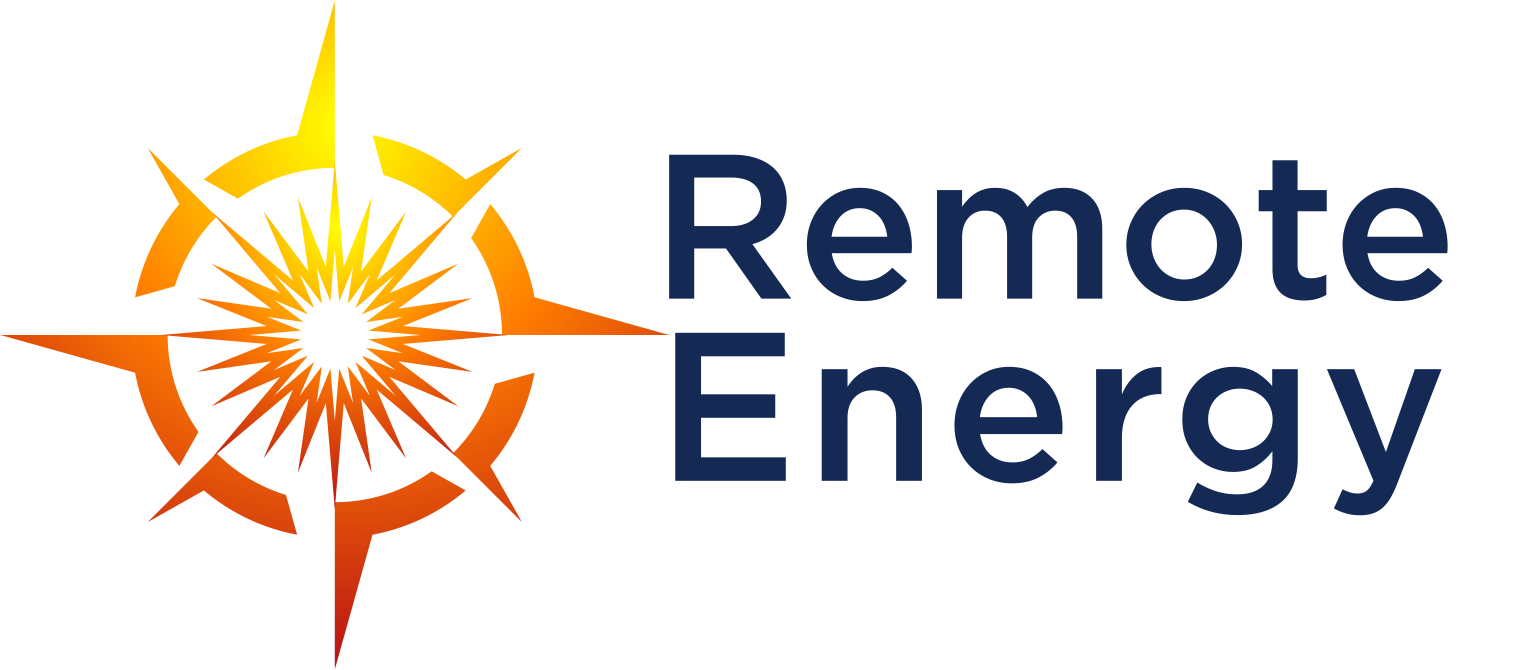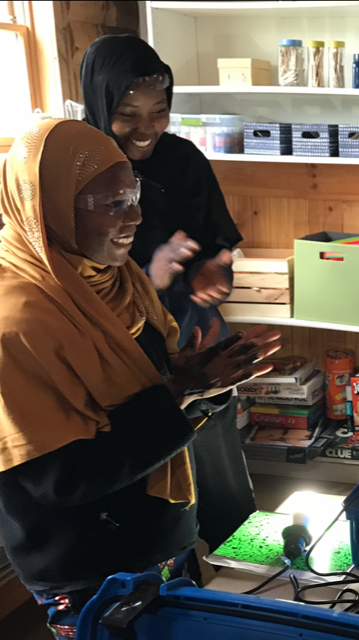Remote Energy Partners with Expanding Lives & We Share Solar to Teach Young Women from Niger & Benin 2019
Special thanks to the Swinerton Foundation, whose funding has provided the initial seed and inspiration for Remote Energy to move forward with the development and implementation of specialized, women-specific solar trainings and workforce development programs.
In Niger, young women typically lack educational opportunity and are underrepresented in STEM fields and higher education. In the Spring of 2019 Remote Energy collaborated with partners Expanding Lives (EL) and We Share Solar (WSS) to implement a 5-day training program for young women from Niger. The program included the development of leadership skills and a technical training component for the assembly and operation of small solar-electric systems.
Expanding Lives focuses on supporting young women from Niger and Benin by teaching leadership skills and supporting opportunities for higher education. Remote Energy specializes in teaching customized solar electric training programs to marginalized populations worldwide. This unique program combined the two and provided plenty of opportunity for cultural exchange as the young women from Niger developed leadership and STEM skills alongside selected students from the Chicago public schools.
Eight young women participated in this year’s program: 4 from Chicago, 4 from Niger. Expanding lives (who has been working in Niger for 11 years) considered the 4 young Nigerien women “All-Stars”. They were selected for the program based on their prior experience working with EL and their remarkable achievements in Niger as graduates in nutrition, business, or agro-economic studies.
Program Schedule
This year’s program was expanded from 2 to 5 days to provide more time for the in-depth study of the solar-electric technology – including the design and installation of the small PV systems. The first day focused on building the WeShare solar suitcases. The second day focused on operating and maintaining the systems and included topics such as reading the controller, using electrical meters and solar water pumping. Day three was spent assembling the light boxes and preparing the suitcases for installation. The fourth day was spent discussing installation details and also provided students with the opportunity to develop and practice teaching skills. This prepared the participants for their return to Niger where they will be installing and teaching about the solar-electric system. The last day of class concluded with a discussion of how partners will be chosen in Niger, questions & answers and course evaluations, with the students presenting their studies to an audience in Chicago.
In-country Installation
Each student returned home with a WSS suitcase that will power 6 lights and provide for cell phone charging in their community. The participants, who are from different regions in the country, will choose partner organizations in their community who will benefit from the installation and provide on-going maintenance and care of the system. The solar module and the battery will be bought in country, and the beneficiary will contribute to the cost of those components if possible.
The women leaders discussed the options of where to install the suitcase system to maximize the exposure of solar and STEM skills to other young women. One idea was to partner with junior high technical colleges in country to promote students to learn solar skills as part of electrical trades. The Expanding Lives participants determined that they would maintain rights to teach women-specific solar classes at the technical college to grade 6 students in order to target younger girls before they choose their educational path as either STEM or linguistics.
Summary and Follow-up
The transformative potential of education for young women in developing communities is profound, especially in the STEM fields. This program provided 4 young women from Niger with the very unique opportunity to become leaders and role-models in their communities. They will also be bringing home a technology and knowledge that will have a substantial impact on lives of other women and on the development of their community.
The 5-day class model developed for this pilot project will be refined and replicated for future projects. Remote Energy’s Women’s Division has an expansive national and international network of women who are dedicated to developing the technical skills, confidence and leadership ability of women from marginalized communities world-wide. Funding for additional projects will support this mission.
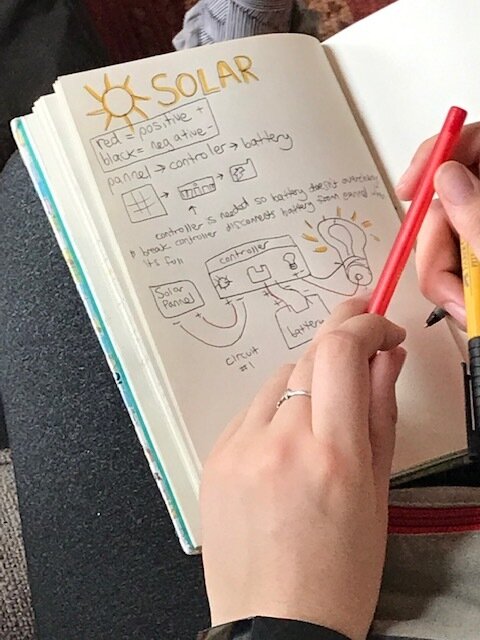
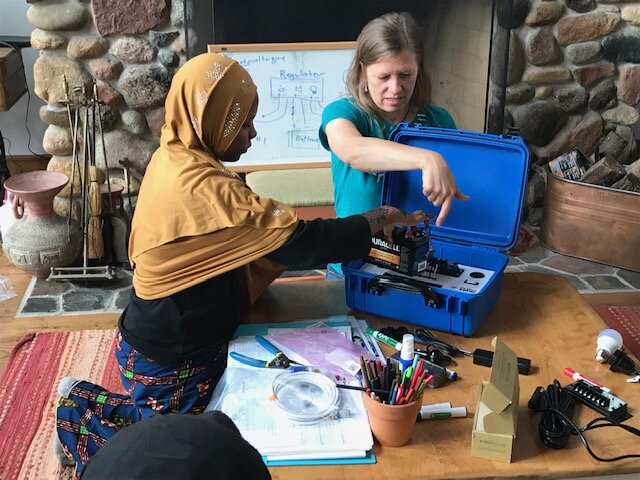
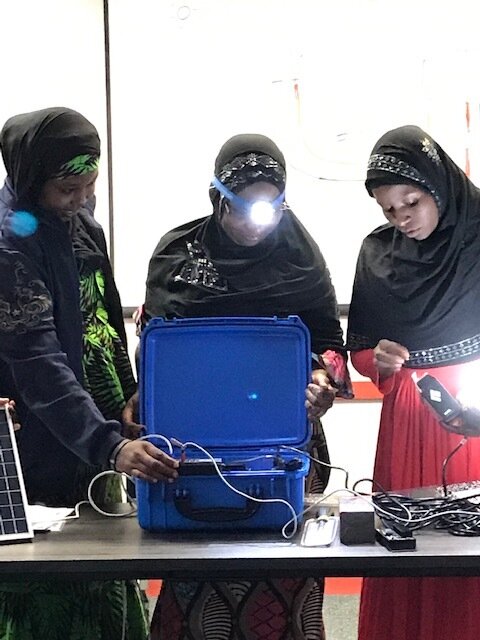
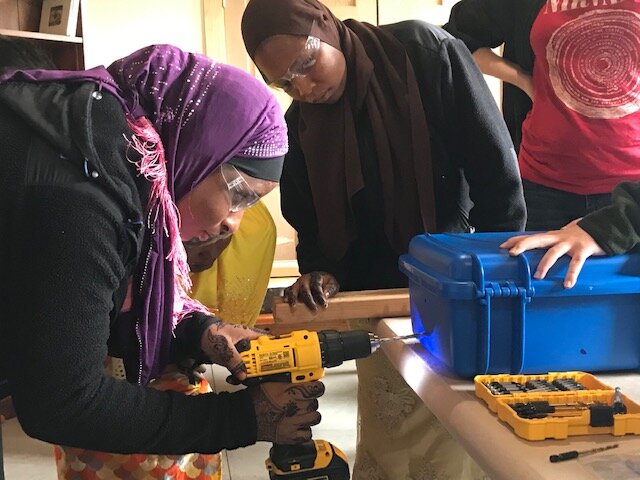
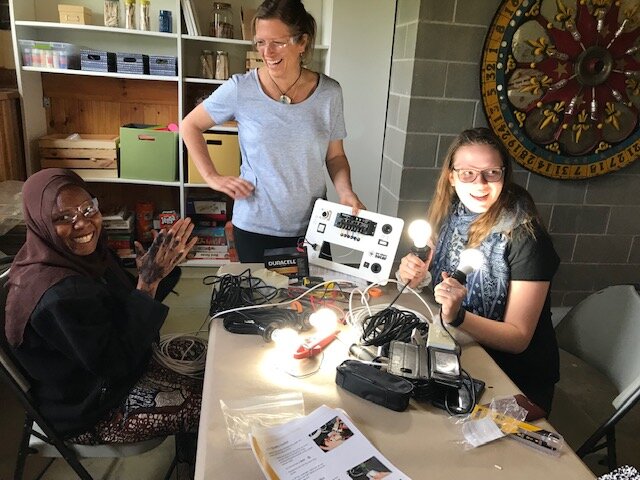
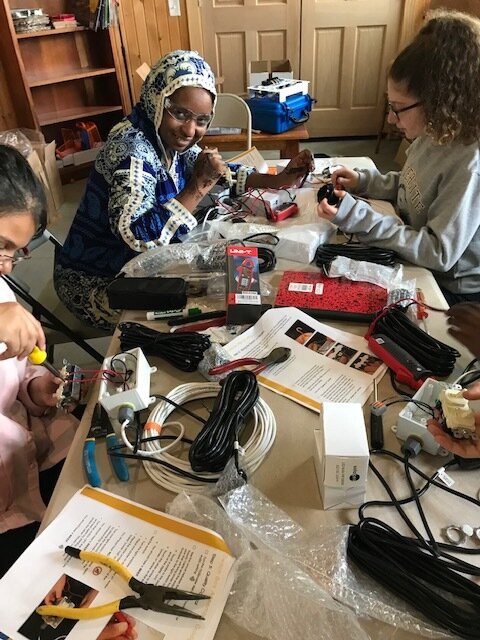
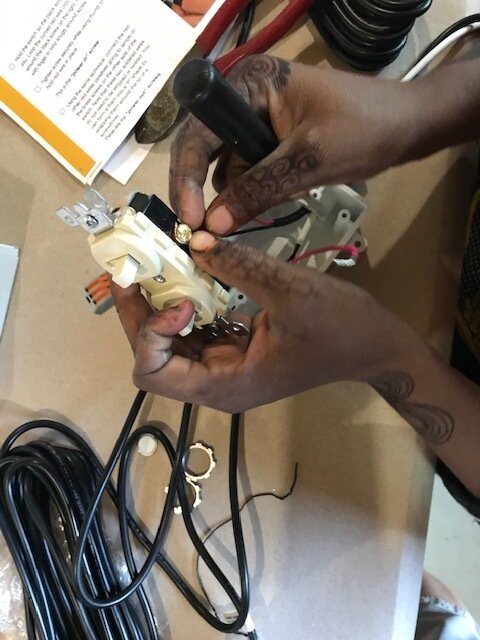
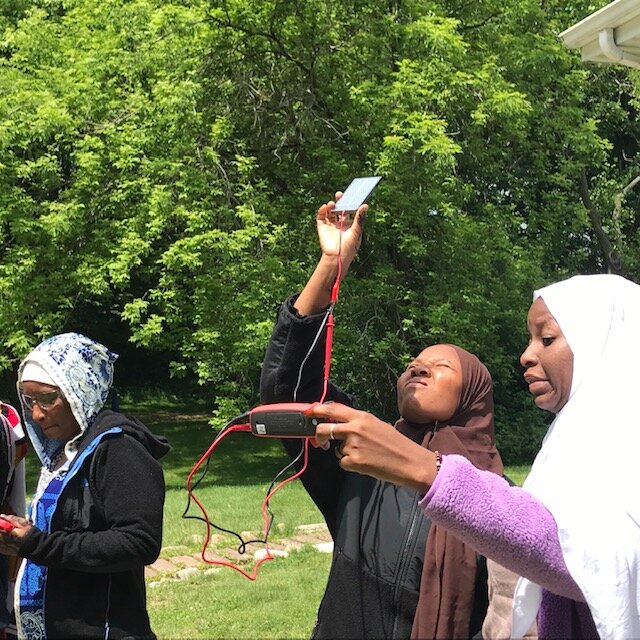
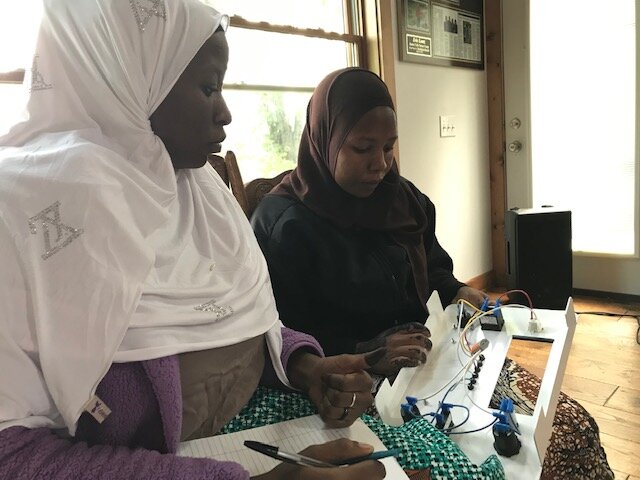
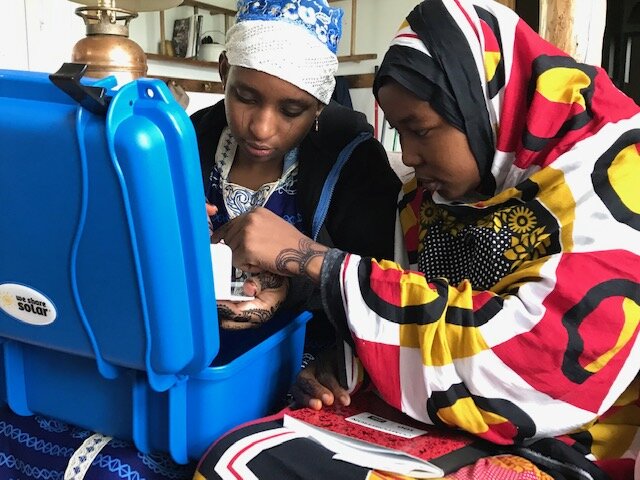
Remote Energy Partners with Expanding Lives to Teach Solar to Young Women from Niger & Benin 2018
Remote Energy (RE) partnered with Expanding Lives to teach a 2-day Small DC Solar Electric Systems course in the summer of 2018 as part of our Women's Program. The course was part of the Expanding Lives 6 week leadership class, to provide education and leadership experiences to young women in West Africa and young people in the United States.
We Share Solar (WSS) donated curriculum and discounted the equipment. North American Board of Certified Energy Practitioners (NABCEP) and other generous donors funded the 2-day solar electric course with hands-on lab and a We Share Solar (WSS) suitcase.
RE Co-Founder, Carol Weis, taught the course which covered solar electric fundamentals, how to safely use tools, and how to construct a WSS suitcase kit. The completed suitcase will be used as a small lighting system for a school in Niger.
The community receiving the solar suitcase and panels is College d'Enseignement Secondaire de Tchadoua, the only high school in Tchadoua, Niger. Tchadoua, about 700 kilometers from the capital, Niamey, is a rural commune. The high school is attended by about 2500 students, most of them from rural areas where there are no high schools. The school has no electricity, no well, and no latrines. Currently, students have study groups with lamps, candles, and flashlights.
The solar suitcase is helping Expanding Lives to build a relationship with the school. The solar suitcase unit will charge during the day and will power two lightbulbs to be used in the evenings in a classroom where exam candidates meet to study. In the beginning of the year, when students are less feverish about studying, the director feels that teachers will take advantage of the light to work on lesson plans. Community building will take place as teachers, most originally from outside the area, will work together. There are a lot of new rural school in Niger, and a serious lack of teachers. Teachers are drawn to schools with resources, places where they can improve, and where students have a chance to succeed. The solar project is something that teachers and students alike can learn from.
Founder of Expanding Lives, Leslie Natzke, said the following about the training
I am excited about this project for so many reasons. Okay, yes, one girl will go back to her community with a small power source, and that will be helpful to the community and her status will go up. More people will know about Expanding Lives and start to think about our mission of educating girls where only 8 percent girls go to secondary school. However, in the larger picture, all the girls also got to use tools and power tools. They worked as a team trouble shooting and problem solving. They understand how electricity works. Solar energy is not just something they have seen in pictures or on a roof in the city. All of this has built their self-confidence. They are proud of themselves for so many reasons. Just today, as they were writing their first resumés, they told the teacher, "We put together a solar power system." The teacher said, "Wow! You put together a solar panel?" "No! We put together a whole system. And we could do it again!"
This was a pilot class to gauge the interest in the group and whether this was a good fit. The students were very engaged and saw immediate practicalities of using solar in their everyday life. These young women are currently studying for their bac exams and need light at night to study. One of the students has already taught 2 short trainings about the system to other girls in her school.
Moving forward, Remote Energy and Expanding Lives plans to lengthen this course in 2019 to be a 5-day class in order to offer more in-depth training, and to send all participants home with a system for their school.
If you would like to support this solar training, please visit our donation page
